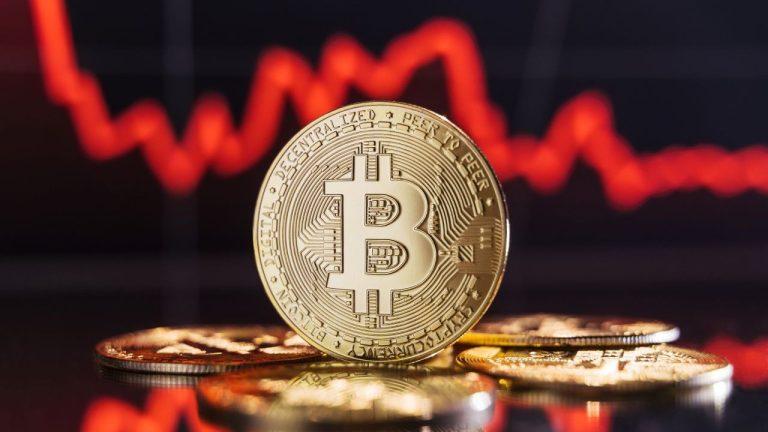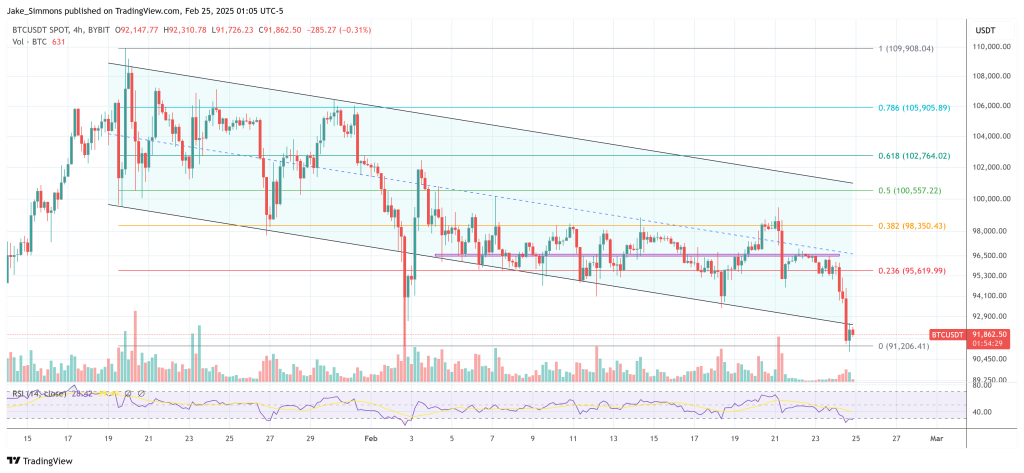This is an opinion editorial by Colin Crossman, a corporate attorney and entrepreneur.
The Case
On June 30, 2022, the Supreme Court of the United States issued an opinion in the case West Virginia et al. vs. Environmental Protection Agency et al.. This decision, which found that the EPA exceeded its authority, will have wide-ranging benefits for Bitcoin.1
At first glance, this appears to be a case related to the Clean Air Act, and the EPA’s ability to regulate carbon dioxide emissions. And if that’s all it was about, it would be a good result. The EPA was stopped from implementing a plan that would have massively increased the costs of operating fossil fuel energy plants. Specifically, the EPA’s plan was to use its regulatory power to shift the entire energy mix of the United States from 38% coal to 27% by 2030.
Fundamentally, the EPA was trying to use an “obscure, never-used section of the law” (Section 111(d) of the Clean Air Act), as a general “permission slip” to recalibrate the power mix of the entire country.2 The large amount of procedural posturing aside, the fundamental question the Court faced was whether or not Congress intended Section 111 of the Clean Air Act to grant the EPA the extraordinary power that it wished to use.
Had it issued a less sweeping edict, the EPA likely would have succeeded in making its rules stick. However, the Court has previously held that for certain major questions, where there are “extraordinary cases” of “economic and political significance,” an administrative agency cannot simply conclude that “Congress meant to confer such authority” when the law does not explicitly and clearly provide for it.3 The Court concluded that such a broad restructuring of the country’s energy economy, especially using such an obscure and unused provision, qualified as that kind of major question.4
“Capping carbon dioxide emissions at a level that will force a nationwide transition away from the use of coal to generate electricity may be a sensible solution to the crisis of the day. But it is not plausible that Congress gave EPA the authority to adopt on its own such a regulatory scheme in Section 111(d). A decision of such magnitude and consequence rests with Congress itself, or an agency acting pursuant to a clear delegation from that representative body.”5
Impact On Bitcoin
The benefits to the Bitcoin mining industry seem clear: the EPA has been stopped from implementing a regulation that arguably would have had negative impacts on miners’ ability to obtain inexpensive power. In addition, further regulation along the path the EPA was taking could have reached into the uses of power, impacting miners’ freedom to operate. That specific policy was stopped cold here.
But, in a broader sense, the EPA being unable to unilaterally use its authority to modify the country’s energy mix, the invigoration of the major question doctrine is a much bigger deal. This can potentially be used whenever an administrative agency (such as the SEC, OCC, CFTC, the IRS and Treasury more broadly, etc.) seeks to expand its authority, without “clear congressional authorization.”6 Of course, whether or not a specific instance of agency overreach will be seen by the Court as an “extraordinary case” where they will apply the major question doctrine, remains open to question and hence much further litigation.
What this does mean is that if an administrative agency attempts to extend their authority over Bitcoin in an unprecedented manner, without clear Congressional authorization, those affected should consider whether or not they can make an argument under this rationale (in addition to whatever other arguments they have). This is especially true if the new regulation by the agency can be shown to have broader effects than just on Bitcoin itself; given the global significance of Bitcoin, I believe such arguments should be tried even if no such broader effects are present.
Final Thoughts
While it is not mentioned anywhere in this decision, today’s decision can be seen as another step towards finally reversing the terrible doctrine known as Chevron deference.7 Chevron deference essentially gives administrative agencies a pass when interpreting ambiguity in their enabling statutes.8 This doctrine has made it nearly impossible in most circumstances to challenge a government agency’s interpretation or rulings or to hold them accountable to a reasonable standard when making determinations. For example, if a ditch has run-off in it after a large rainstorm, and the EPA and the Army Corps of Engineers decide to label it “navigable waters” in order to assert their jurisdiction over it, the affected property owner has no real prospect of overturning that absurd designation, thanks to Chevron deference.9 This near-total lack of democratic accountability has been a significant factor in the insane growth of the administrative state since the early 1980s.
Justice Gorsuch once observed that, if the Supreme Court were to overrule Chevron, “[t]he only difference would be that courts would then fulfill their duty to exercise their independent judgment about what the law is.”10 Yet that comparatively small legal difference will ultimately make a huge difference to everyday Americans, who will once again be able to hold their government to account for its decisions. The sooner the court abandons Chevron and forces both Congress and the administrative state to return to their proper duties, the better.11
Footnotes
1: In the interest of time and space, this is an extremely concise overview, which leaves out a ton of detail. Please read the case itself.
2: West Virginia vs. EPA, 597 U.S. ____, slip op at 6 (2022) (quoting remarks of Sen. Durenberger).
3: Id. at 17 (internal quotes omitted).
4: In a footnote, the Court states that “Section 111(d) empowers EPA to guide States in establish[ing] standards of performance for existing source[s], §7411(d)(1), not to direct existing sources to effectively cease to exist.” Id. at 24, footnote 3 (internal quotes omitted).
5: Id. at 31 (internal quotes and citations omitted, emphasis added).
6: Id. at 19.
7: Chevron U.S.A., Inc. v. Natural Resources Defense Council, Inc., 467 U.S. 837 (1984).
8: There’s another form of deference, known as Auer deference, which is also bad, and works hand-in-hand with Chevron deference. Auer v. Robbins, 519 U.S. 452, 461 (1997).
9: See Kristen Clark, Navigating Through the Confusion Left in the Wake of Rapanos: Why a Rule Clarifying and Broadening Jurisdiction Under the Clean Water Act is Necessary, 39 Wm. & Mary Envtl. L. & Pol'y Rev. 295 (2014).
10: Gutierrez-Brizuela v. Lynch, 834 F.3d 1142, 1158 (2016) (note that Justice Gorsuch was Judge Gorsuch when he wrote this opinion).
11: See Christopher J. Walker, Attacking Auer and Chevron Deference: A Literature Review, 16 Georgetown J. L. & Pub. Pol’y 103 (2018).
This is a guest post by Colin Crossman. Opinions expressed are entirely their own and do not necessarily reflect those of BTC Inc. or Bitcoin Magazine.

You can get bonuses upto $100 FREE BONUS when you:
💰 Install these recommended apps:
💲 SocialGood - 100% Crypto Back on Everyday Shopping
💲 xPortal - The DeFi For The Next Billion
💲 CryptoTab Browser - Lightweight, fast, and ready to mine!
💰 Register on these recommended exchanges:
🟡 Binance🟡 Bitfinex🟡 Bitmart🟡 Bittrex🟡 Bitget
🟡 CoinEx🟡 Crypto.com🟡 Gate.io🟡 Huobi🟡 Kucoin.



















Comments